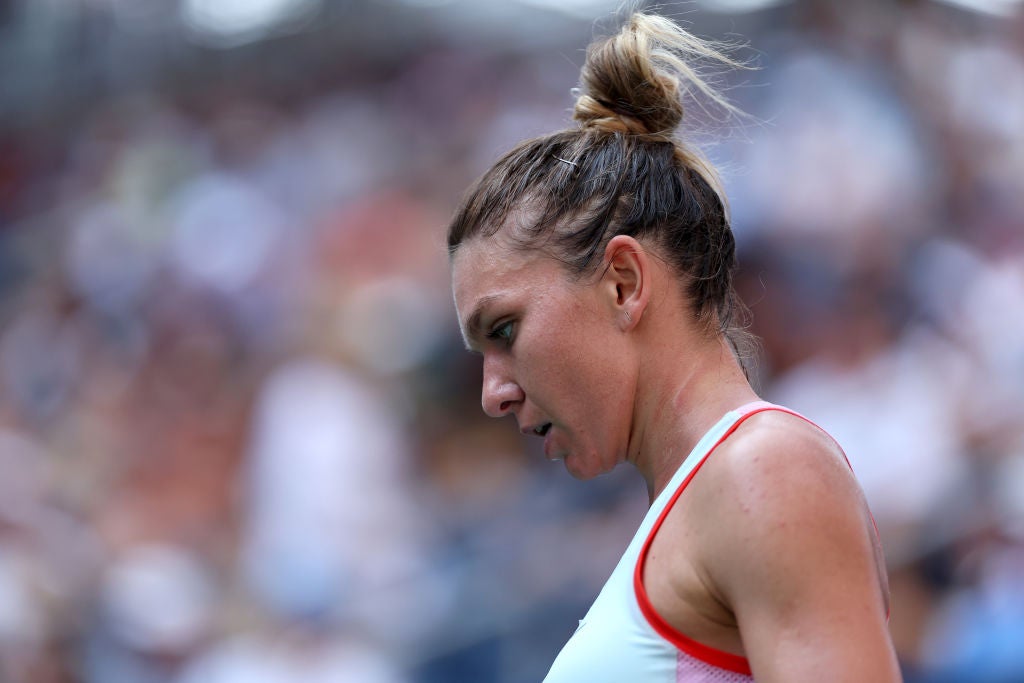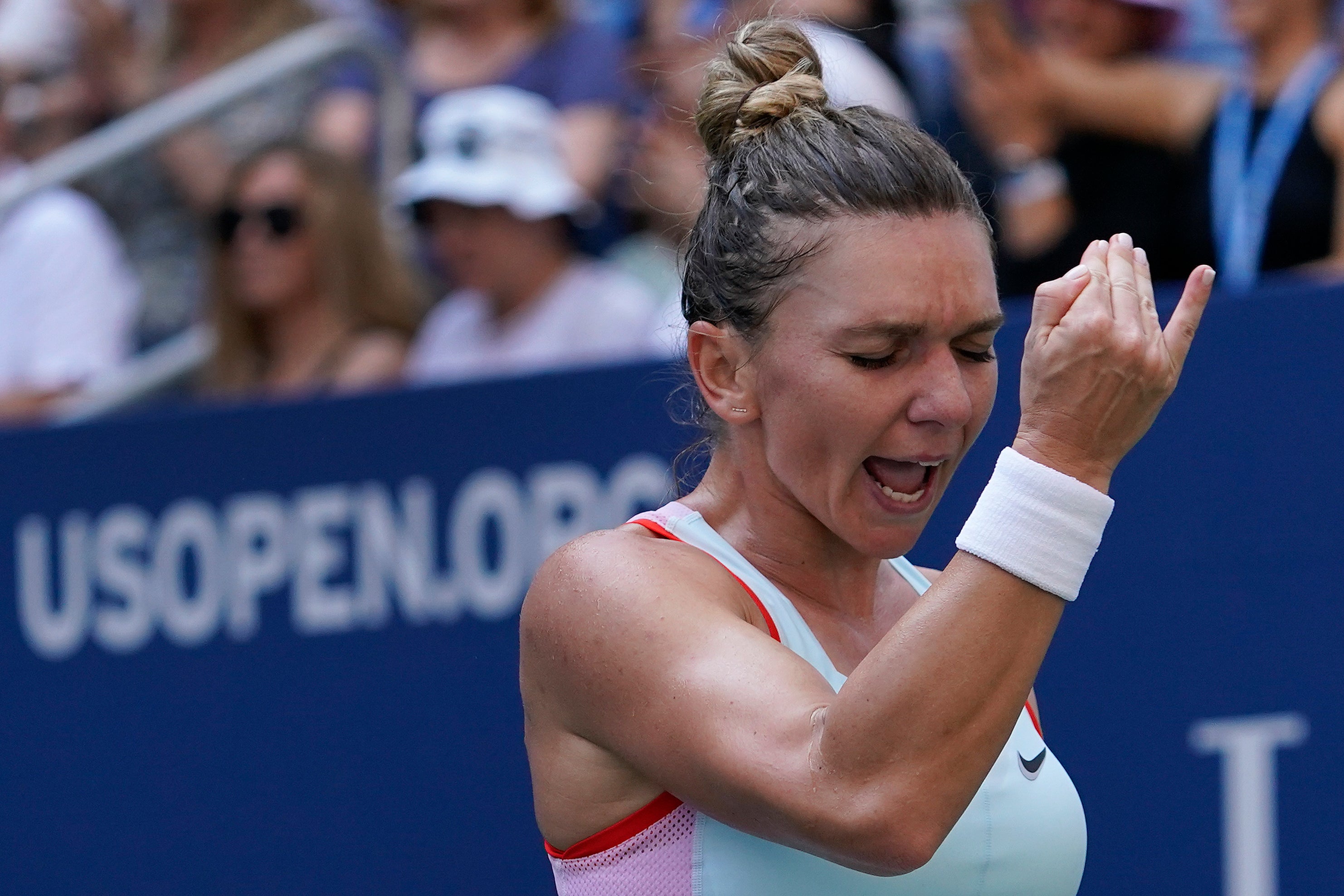Simona Halep’s complicated Cas hearing explained – and what is Roxadustat?
The Romanian player faces a fight to save her reputation but, as Jamie Braidwood outlines, the case is more complicated than merely a failed doping test

Your support helps us to tell the story
From reproductive rights to climate change to Big Tech, The Independent is on the ground when the story is developing. Whether it's investigating the financials of Elon Musk's pro-Trump PAC or producing our latest documentary, 'The A Word', which shines a light on the American women fighting for reproductive rights, we know how important it is to parse out the facts from the messaging.
At such a critical moment in US history, we need reporters on the ground. Your donation allows us to keep sending journalists to speak to both sides of the story.
The Independent is trusted by Americans across the entire political spectrum. And unlike many other quality news outlets, we choose not to lock Americans out of our reporting and analysis with paywalls. We believe quality journalism should be available to everyone, paid for by those who can afford it.
Your support makes all the difference.Ever since October 2022, Simona Halep has been fighting “the hardest match” of her life. Now, the former World No 1 and Wimbledon champion awaits the verdict of a three-person independent panel at the Court of Arbitration of Sport (CAS) in Switzerland. If Halep loses, her career will be all but over, and tennis will have its biggest doping scandal since Maria Sharapova tested positive for meldonium in 2016.
Halep is appealing a four-year ban imposed by the International Tennis Integrity Agency (ITIA) after testing positive for the banned substance Roxadustat at the 2022 US Open, while investigators also found irregularities in her biological passport. Halep denies wrongdoing and has blamed contaminated nutritional supplements for the findings. The charges brought before the CAS panel are serious, however. Roxadustat is used for the treatment of anaemia, but in a sporting context is prohibited because of its capacity to boost the production of red blood cells in the body. Its effect is similar to EPO, the doping product that has plagued major endurance sports such as cycling’s Tour de France.
Halep, 32, has been provisionally suspended since news of her positive test for Roxadustat was announced in October 2022. She would be banned until October 2026 if she loses her appeal, by which point she would be 35. Halep says it would likely spell the end of her tennis career. “Four years is going to be a lot for my age,” she said. “Catastrophic.”
Born in Constanta, Romania, Halep achieved hero status in her home country when she defeated Serena Williams to win Wimbledon in 2019. In what she would describe as the best match of her life, Halep’s stringent defence on the baseline and resilience in the rallies saw her comprehensively beat Williams 6-2 6-2, denying the American what would have been a record-equalling 24th grand slam title. For Halep, the honours that followed were fitting of her historic achievement. The first Romanian player to win Wimbledon, she showed off the trophy at the Bucharest National Stadium and later learned she would be awarded Romania’s Order of the Star, the country’s top honour, as well as the distinction of being Romania’s flag-bearer at the Tokyo Olympics.
Winning Wimbledon gave Halep her second grand slam title - she won the French Open the previous year - and also saw her return to World No 1. After losing her first three grand slam finals, it seemed Halep had acquired the skills required to master the sport’s biggest tournaments and was set for a dominant spell at the top of the game. Though it did not materialise: sidelined first by the pandemic in 2020 and then by a series of injuries in 2021 - which forced the Romanian to miss her Wimbledon defence that year - Halep dropped down the rankings as a new wave of champions such as Ash Barty and Iga Swiatek surpassed her to reach the top of the sport.
There was also change behind the scenes. In March 2021, Halep decided to start working with a new coaching team. Halep’s breakthrough French Open title had been won with Darren Cahill in her corner, the Australian coach who has recently helped oversee Jannik Sinner’s transformation into a grand slam champion. But after parting ways with Cahill, Halep started working with Patrick Mouratoglou, previously a long-time coach of Serena Williams, and later that year moved to his Mouratoglou Academy in France.
Yet as of February 2024, as Halep arrived in Switzerland for the start of her appeal at CAS, Halep and Mouratoglou were no longer working together and had not spoken in months. As witness statements to the ITIA show, before the start of the 2022 US Open, Mouratoglou and Halep’s physiotherapist Candice Gohier recommended that Halep add a collagen supplement to her nutrition plan. Halep had struggled with injuries before the US Open, having to withdraw from a warm-up tournament in Cincinnati, and Gohier ordered three new supplements. Gohier and Mouratoglou said they checked the products for banned substances and determined they were safe to use. On 29 August, after her first-round defeat at the US Open, Halep was selected for an in-competition sample. It returned a positive result for Roxadustat.

Halep has been adamant that she did not take Roxadustat intentionally. In November 2023, Mouratoglou posted a video statement on his Instagram in which he took the blame on behalf of his team. “This collagen happened to be contaminated," he said. “I feel responsible for what happened because it’s my team - so me, basically - who brought her this collagen.”
Halep’s case is more complicated than a supposedly tainted supplement, however. After her positive test for Roxadustat, it emerged Halep’s biological passport - the testing system used to establish an athlete’s blood profile over several years - had recorded abnormal or “suspicious” results in the 2022 season, leading the ITIA to believe that Halep was “likely doping”. As they published their decision to hand the Romanian a four-year ban, the ITIA said its tribunal accepted Halep’s argument she had taken a contaminated supplement, but found the amounts she had ingested did not explain the concentration of Roxadustat in her urine sample provided at the US Open on 29 August 2022.
Halep attended her appeal in Lausanne, Switzerland in person. To lead her defence she appointed Howard Jacobs, the American lawyer who represented Sharapova in her doping case, as well as number of top athletes and Olympians implicated in doping cases, even outside of track and field, including swimming world record holder Jessica Hardy and the UFC’s Jon Jones. Halep has maintained her innocence and as her appeal began, a Cas statement said: “No indication can be given as to when the final arbitral award will be notified to the parties." A decision could be months away, and while Halep waits, her career hangs in the balance, too.



Join our commenting forum
Join thought-provoking conversations, follow other Independent readers and see their replies
Comments